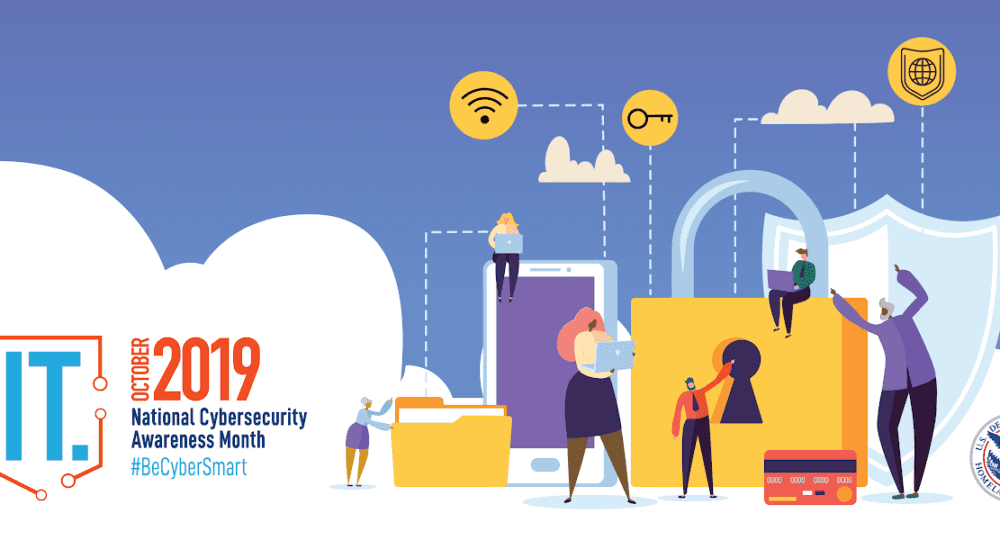October is National Cybersecurity Awareness Month, and it may come as little surprise this is in the same month that ends in the spookiest of holidays (Halloween). Cybersecurity can be scary, especially the effects of failing.
This year’s overarching theme is “Own it. Secure it. Protect it.” The most empowering notion of cybersecurity is owning the choices and responsibilities.
Taking control is difficult sometimes for people that may feel intimidated by technology or computers. At Registry Partners, we believe the key to taking effective control of cybersecurity and staff being able to own their choices is education.
When a healthcare worker understands good security choices and best practices, the fear and anxiety subside: knowledge is power. So here are five ways to take ownership of your security in big ways. Just be sure to check with your own I.T. or Security departments, or reference policies or procedures to know your workplace expectations for cybersecurity.
- Don’t save or store passwords within your browser. Browsers do so many different tasks today in addition to viewing web pages: playing movies, music, games, or even displaying PDF files. The increased functionality makes security difficult. Much better to use a dedicated password manager that is designed from the ground up, and solely for, securing credentials.
- Akin to the above, make a habit of logging out of sessions within your web browser. This means when you’re done with your webmail or remote EMR session or Facebook, find the Logout button and sign out. A session that’s logged out can’t be hijacked!
- Lock your computer whenever you walk away from the machine. On Windows, this is easily done with the keyboard combination of the Windows key (bottom-left of the keyboard just usually a few buttons to the left of the spacebar) and the L key. Hold the Windows button, tap L and the computer locks the screen.
- Use different passwords! Making your password the same across multiple, or all, logins is a very common practice, but also very poor security posture. If a hacker finds your password on one website because of a breach, where else would they be able to use it to get into your accounts online? A few more? A lot more? All of them? Using a password manager program helps remove the hassle of remembering different passwords for each login, as well as aids in making them longer and stronger.
- Understand what you’re clicking before you do. Is that email attachment something you were expecting, or possibly a virus? Does the email seem fishy (or, phishy)? Does the link or the website you landed upon look or feel legitimate, or different than you expect? A healthy suspicion is often the best first line of defense in cybersecurity.
Learn to #BeCyberSmart. Ask questions! Find a mentor that can help you learn over time, and own your own cybersecurity.
Graphic courtesy of NICCS





